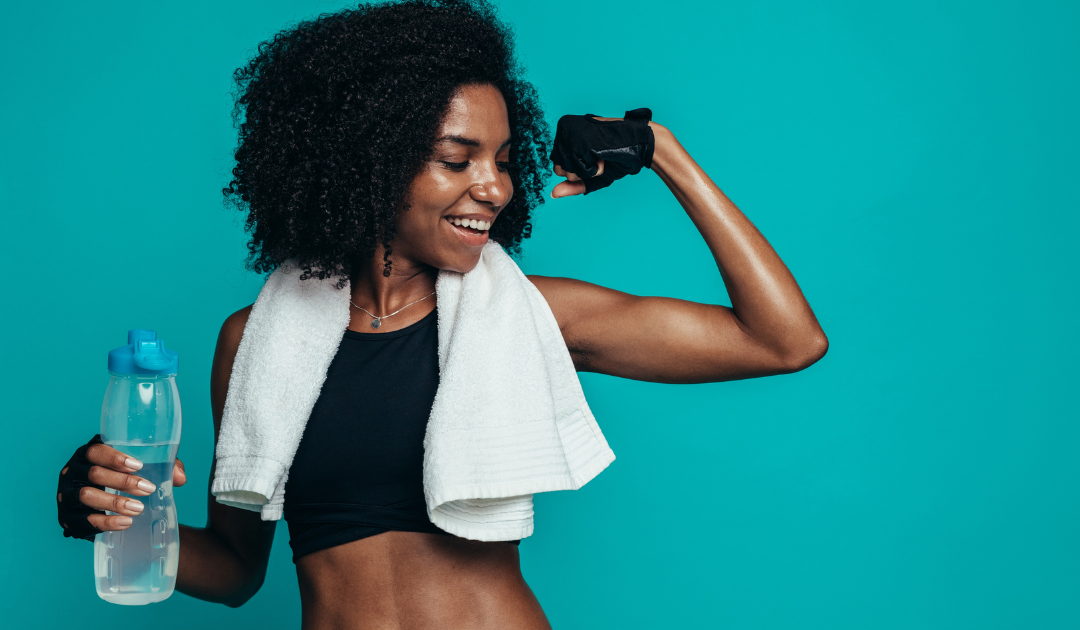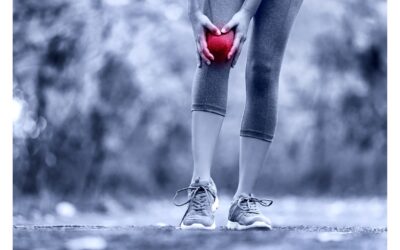It isn’t just athletes who seek us out to recover sore muscles and injuries, far from. We look after people like you and me too, who have active jobs and busy lives, who have a sporty hobby or just love to train in the gym. Sore muscles and injuries are not reserved only for the elite. Our aim is to help you recover safely and even speed up that process to get you back doing what you love quicker – whether that’s strutting your stuff on the dancefloor or back to training for an event.
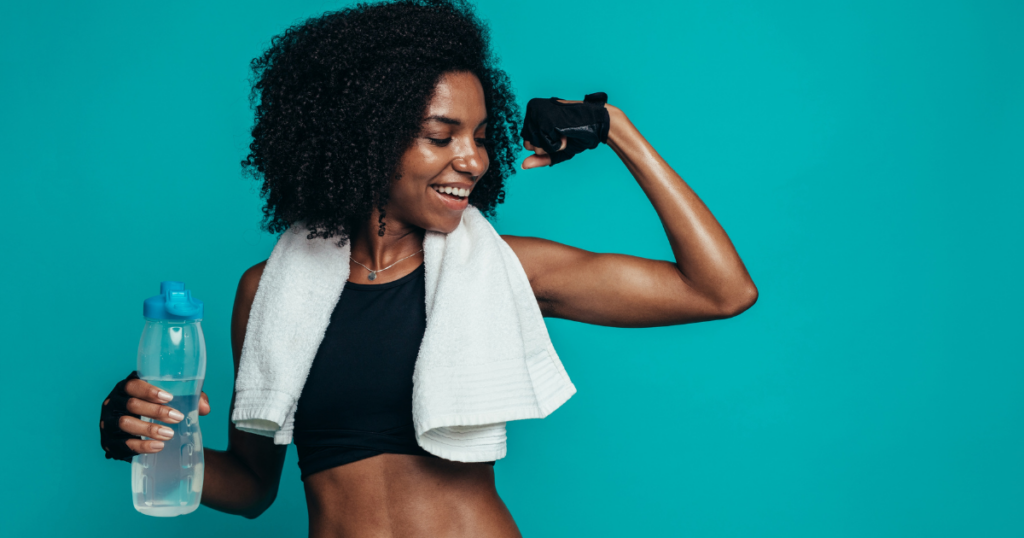
If you’re not in the professional leagues, you’d be forgiven for overlooking the importance of rest and recovery and instead focussing heavily on exercise and nutrition. Any professional athlete, trainer, coach, physiotherapist or sports therapist will tell you that rest is just as important as the exercise itself.
So, why is that? Here are 7 reasons why taking time for sports recovery is essential for you to hit your goals safely:
1. Time to heal and prepare for the next training load
A training load is defined as “the cumulative amount of exercise you’re doing, usually measured over a week.” Many of us will measure duration and intensity with wearable devices and fitness trackers, this helps us keep tabs on how we are performing and improving and help us to avoid going over our optimal range, where we could injure ourselves.
During exercise and strenuous activity your muscles are forced to contract and stretch at a faster rate than normal. This exertion causes microscopic tears in the fibres and triggers inflammation which can leave you feeling a little tender afterwards. If you’re just starting your fitness journey, returning from injury or trying something new (like switching from running to Pilates), you’re very likely to feel sore as you use new muscles groups.
Whilst this is totally normal, your body does need time to heal those tiny tears before it’s ready to go again. When you ignore this, you leave yourself at risk of injury, more on that in our next point…
2. Decreases the risk of injury, overtraining and burnout
Wouldn’t it be great if we could do everything in life with 100% efficiency? BUT, let’s get real. You’d be a terrible boss if you let your employees work 7 days a week and expect them to maintain their performance levels (and state of mind!) without adequate time to recuperate. Well, the same is also true of exercise.
Overtraining is when you are training too frequently or too intensely and can lead to injuries, such as stress fractures, muscle sprains, shin splints or worse. In severe cases, overtraining can lead to injuries that may become irreversible if ignored. Overtraining can also impact your mental health and be a contributing factor to ‘burnout’.
“Burnout is a state of physical and emotional exhaustion” explains Mental Health UK, who have written a great piece on the matter. Read this here.
Unfortunately, burnout is pretty prevalent among athletes due to the pressures associated with their profession. An athlete may overtrain during the lead up to a big event or competition or if they attempt to recover from injury too quickly or before they are ready. Putting physical activity aside, there is much stress that comes with the job – competitions, being self-critical, unrealistic expectations and high training demands or generally not getting the support they need.
3. Replenishing glycogen (energy stores)
If you’ve had a particularly intense workout and are feeling sorer than usual, it easy to be hard on yourself when you need to rest. Listen to your body! And fear not, your muscles are actually getting stronger while you are recovering! This muscle growth process happens while you recover, NOT while you exercise.
Think of glycogen as fuel for your muscles and cells (which comes from glucose). Our clever bodies ensure that our muscles have their own store of glycogen to use for energy and when you exercise. If this separate store of glycogen is depleted, your body will take from stores elsewhere in the body which can create havoc for the cell activities and blood glucose which rely on those stores. Diet and rest are key to restoring this lost energy.
4. Better performance, endurance, agility and reaction time in training sessions
When your body is working at its best, you will give a better performance – a ground-breaking insight we know!
Your performance is affected because your body becomes fatigued and weaker. We often are too hard on ourselves and a poorer-than-normal performance can be frustrating. When we haven’t met our own expectations, we may assume the solution is to simply train more or train harder. WRONG. In a fatigued state, your body simply cannot keep up with what you’re expecting it to do – we’re not superheroes, we have limits. It’s unsustainable and will only make the problem worse and even lead to injury and burnout.
The solution is to give your body the time to rest and repair. Just a couple of days between workouts can be enough. Trust us and see what happens at your next training session. Sports recovery changes the GAME!
5. Reduces muscle fatigue and soreness
Muscle fatigue is felt when your muscles can no longer generate the force needed to perform. For example, when you start an aerobic exercise versus the end of the session. The muscles are expending engery and repeating movements that make them tired. You might feel soreness, as we mentioned before. It’s no big deal unless ignore what your body is telling you. If you’ve read this far into the blog, you’ll know by now that failing to listen to your body equals risk of injury. Can you meet your goals when you are injured? Of course not.
Sports recovery is essential rest time for your muscles, allowing the tissues to repair, energy levels to replenish and hormone levels to rebalance.
6. Gives the body time to adapt to the ‘stress’ associated with exercise
Physical benefits aside, it’s well known that exercise has many mental benefits too – like releasing those feel-good endorphins and reducing cortisol levels over time, with routine training and better health.
BUT – and wrap your head around this – overdoing it on high intensity exercise increases energy-boosting hormones like cortisol and adrenaline. Cortisol is the body’s stress hormone and gets a lot of bad press but actually, under the right conditions, it plays a vital role in your fight or flight responses by shutting down less critical bodily functions to provide your body with the much-needed energy to fight off any immediate threat. These effects are only meant to be short-lived.
Constant strenuous, endurance exercises may overproduce these hormones and negatively impact your mental health and ability to switch off and relax. Allowing yourself time to rest is essential to maintain health cortisol levels. See, sports recovery isn’t just about muscles!
There are other factors to consider too, such as timing, intensity and what you’ve eaten, for more info on maintain healthy cortisol levels when training, read this.
7. Better quality sleep
Ah, sleep – the elixir for many of life’s ails. We could write a whole blog just on the topic of sleep health and sleep hygiene (and maybe we will – watch this space!) but for now, let’s keep it to the context of its role within sports recovery. Here’s why sleep is important for optimising your recovery:
- Improves concentration, productivity and cognitive function
- Allows your hormones to return to a normal and balanced state
- Improves immune system (can’t train if you’re not well!)
- This is the time when the majority of vital functions occur such as tissue repair, hormonal releases and muscle repair and growth
- Gives your brain cells time to relax, regroup and reenergize.
The National Library of Medicine sum it up perfectly by suggesting the three pillars of health to be: diet, exercise and sleep. Ignoring one causes the other two to suffer.
“We feel people who are sleep deprived may perform poorly in peak exercise and may crave unhealthy foods that can promote weight gain. Similarly, we propose dietary indiscretions can yield poor sleep and may impair athletic performance. We believe optimizing all three pillars is critically important to overall health and recovery, and is a better strategy than resorting to supplements and energy drinks that athletes (and the general population) may turn to when fatigued and lacking adequate sleep.”
Sports Recovery treatments at Cryojuvenate in Sevenoaks
Whole Body Cryotherapy

Loved by celebrities and athletes, cryotherapy is the ultimate rejuvenating treatment for your body and mind.
Our whole body cryotherapy chamber is a large, walk-in chamber that can accommodate 1-2 people per session for 3-5 minutes with an average temperature between -85°C and -90°C.Three minutes to better wellness, sub-zero temperatures kick start your body’s natural healing processes so whether you’re battling brain fog, struggling to sleep, seeking sports recovery, treating the symptoms of a chronic condition, or looking for a beauty boost, cryotherapy whole body could be the remedy you’ve been looking for.
Learn more about whole body cryotherapy in Sevenoaks.
Localised Cryotherapy
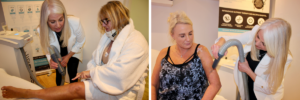
Local cryotherapy is a targeted cold therapy treatment to help with pain relief and support recovery from sports and lifestyle injuries and post-op rehabilitation. Local cryotherapy is regularly used in to treat both acute and chronic injuries of soft tissue, to help reduce pain, inflammation and swelling. Using a hand held device, our sports therapist applies cold air to the target area(s), which triggers the body’s anti-inflammatory responses.
Learn more about localised cryotherapy in Sevenoaks.
Sports Massage
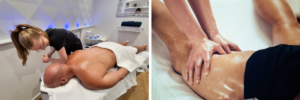
Our team are experts in sports injury management and sports recovery. A sports massage is a type of bodywork that is used to improve physical performance. It can also be used to help with injuries and other conditions.
There are many benefits of sports massage. These include:
- improved blood flow and circulation
- reduced muscle tension
- relief from pain and stiffness
- enhanced athletic performance
- improved flexibility, balance, coordination, and agility.
Learn more about sports massage in Sevenoaks.
Compression Therapy Trousers
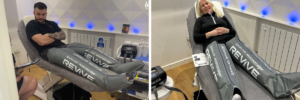
Change how you ‘do’ recovery – manage muscle soreness and improve blood circulation in just 20 minutes with compression therapy trousers. Backed by science and used every day by world class athletes, 20 minutes of treatment daily can provide the equivalent of 12-48 hours of rest! Compression therapy isn’t just for athletes as part of their sports recovery, better circulation and lymphatic flow is important for general wellbeing and good health.
Learn more about compression therapy trousers in Sevenoaks.
Vitamin injections
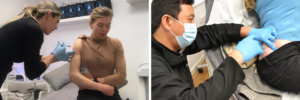
We offer five vitamin booster shots ranging from Vitamin B12 for lasting energy, B-Complex for metabolism and energy-boosting, Fatburner to assist with natural metabolic weight loss, Glutathione to promote overall wellness, and Biotin (Vitamin H) which is an excellent supplement for healthier hair and nails. You will begin to feel the effects immediately and they will fully develop over the next few hours. As opposed to energy drinks which prop you up for a few hours before crashing again, energy from injections typically lasts for days.
Learn more about vitamin injections in Sevenoaks.
“I had another lovely treatment with the lovely Cryojuvenate team once again and will most certainly be booking another treatment next week. I have recommended Cryojuvenate to a number of friends and they have all loved their treatments too. We can’t recommend this lovely lot enough” Jay Scott


